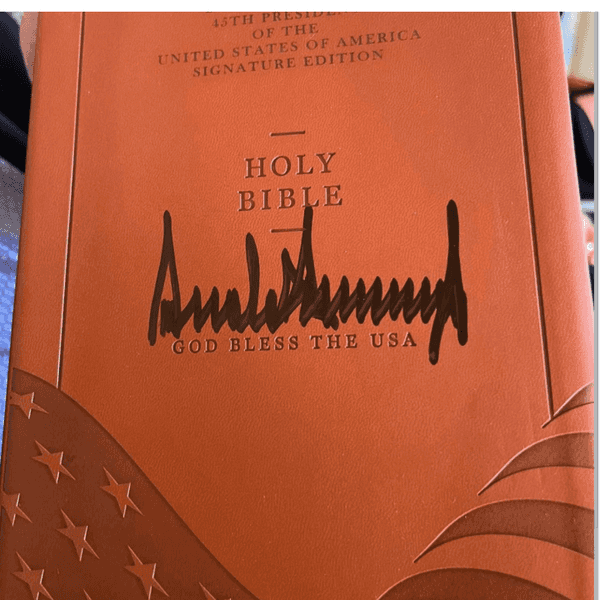
By Steven Yaccino, Bloomberg News (TNS)
NEW YORK — It is the holy grail of political geekery, wished-for every four years, and exceedingly rare: a contested political convention. In the past few decades, this has been mostly a fantasy, but this year, many in the GOP are taking that prospect very seriously. At a Washington, D.C., dinner on Monday at which more than 20 Republican establishment figures gathered to talk fundraising and other party business, the topic arose toward the end of the evening, according to sources who attended the meeting, which was first reported by The Washington Post.
The math behind a deadlocked convention is simple: If three or more Republican candidates are still competitive in the presidential race beyond March 15, as seems increasingly possible, it will be difficult to avoid a situation in which no candidate accumulates over 50 percent of delegates, so multiple ballots could be needed to select the Republican nominee in Cleveland next summer. The working assumption is that one of those candidates will be Donald Trump — which has brought considerable focus to the establishment mind.
A brokered convention hasn’t occurred in American politics for more than 60 years. The last one was on the Democratic side, in 1952. Adlai Stevenson, then governor of Illinois, had no intention of being the nominee when he walked into the Chicago convention hall that year; he was drafted as a compromise candidate when two senators — one from Georgia, the other from Tennessee — failed to rally enough backers. It took three ballots before Stevenson stood behind the dais and, immediately after accepting the nomination, declared, “I should have preferred to hear those words uttered by a stronger, a wiser, a better man than myself.”
It’s perhaps no coincidence that 1952 was also the first year political conventions were broadcast on television, beaming intra-party brawls into the living rooms of general election voters nationwide. The complex drama may have been an electoral drag: Stevenson was trounced by Republican Dwight Eisenhower that November. (The last time Republicans had a multi-ballot convention, in 1948, they too lost the general election).
In the years since, conventions have been, increasingly, scripted and stage-managed extravaganzas — less a venue for party business and more a pep rally for the nominee presumptive.
This year, the equation has been rewritten. Trump’s persistent strength and sky-high negatives, coupled with the inability thus far of the mainstream Republicans to coalesce around a single candidate, and a series of rule changes that encouraged more states to award their delegates proportionally, make it easier than ever to imagine a contested-convention scenario. And given the GOP’s turmoil over the possibility of Trump-the-nominee, Cleveland could very well become the establishment’s last stand, a place where they can wield their influence — and where they actually may have an advantage.
“I think that the candidates are all aware of this and they’re all planning up to a certain level for it,” Vin Weber, a Jeb Bush ally and former adviser to Mitt Romney’s 2012 campaign, said in an interview conducted before he attended the Monday RNC dinner.
Like others in the party, Weber said it’s too early in the race to predict a nomination stalemate, but admits that the state of the GOP race incentivizes campaigns to plan for a long and arduous delegate fight.
“I think the dynamics are being set up perfectly for it to happen for the first time in over a generation,” said Michael Steele, former head Republican National Committee. “Every candidate on the ballot will get a piece of something,” Steele continued, describing states that will vote before March 15. “It may not be a big piece, but it will be a piece and, accumulated over a six-week period, where we’ll have well over 50 percent of the delegates being chosen, you’ve written a recipe for a brokered convention.”
The reason a contested convention is possible this cycle isn’t only the dynamics of the field, with its problematic front-runner and several establishment contestants splitting votes. The GOP itself inadvertently cleared the way with a newly condensed GOP primary calendar, which could give candidates less time to break away from the pack, and new GOP rules that force every state (with the exception of South Carolina) voting before March 15 to award their delegates proportionally. In the end, more than 60 percent of states around the country will divide up their delegates between more than one presidential contender.
The new rules were drawn up following Mitt Romney’s protracted 2012 primary race, which party leaders believe damaged his chances in the general election. Wanting to give their 2016 standard-bearer an open, fair, but smoother, runway to the convention, the RNC shrunk its primary calendar by nearly two months, limited the number of Republican debates, and encouraged more states who want early primary dates to dole out their delegates proportionally, which gives lesser-known candidates a better shot at competing in the compressed nomination fight.
Another person at the RNC dinner Monday, Ron Kaufman, a Republican committeeman and member of the party’s rules committee, defended those rule changes, but concedes they could actually allow more candidates to go further in this race than in previous elections. “It is uncharted waters,” he said. “We do have some different candidates who no one thought would be doing so well. And the open process is playing to their advantage.”
The possibility of a Donald Trump candidacy was not factored into the rules changes, Kaufman said, but Republican leaders discussed the possibility of other outside candidates crowding the field. Asked whether he thought the new rules increased the likelihood of a contested convention, he deflected. “If it happens, it happens, but I know this: if we didn’t do it that way, our chances of putting together a coalition and winning the presidency would be even worse,” Kaufman said. “The unknown could be a problem, but it was the right thing to do.”
To some, the speculation about a contested convention is nothing more than a quadrennial daydream, given further fuel by Trump. “It’s mathematically possible, it’s just not very likely,” said John Sununu, an adviser of John Kasich’s campaign.
But campaigns are treating it as a real possibility. Mark Stephenson, former data chief for Scott Walker’s campaign, who had began mapping out the delegate calendar before Walker suspended his campaign in September, said other candidates are already looking for ways to pick up delegates in proportional states, congressional district by congressional district, without necessarily having to win the full statewide vote.
He and other Republican strategists said they expect roughly half of the GOP candidates to suspend their campaigns by the end of February and hang on to their delegates, however few, for leverage later in the race. By mid-March, the nomination contest is likely to dwindle to three or four candidates whose polling, delegate tally or fundraising abilities are strong enough to keep them competitive. At least one of those candidates will come from the party’s establishment lane (Marco Rubio, Jeb Bush, etc.). Another will likely represent the conservative, anti-establishment wing (Ted Cruz, Ben Carson, etc.). Trump, who is self-funding his campaign and still leads the field with more than a quarter of the vote in national and state polls, has established his own separate, third lane in the nomination fight.
The most commonly discussed path involves a scenario in which early states get divided up between three or more candidates. (For the sake of this hypothetical, let’s say Cruz wins Iowa, Rubio wins New Hampshire and Trump wins South Carolina). Those three candidates would be well-positioned to then split up states that vote in early March, when all delegates are rewarded proportionally and make up more than a third of the total 2016 delegate count, and advance to the winner-take-all phase of the race with somewhere around 300 to 400 delegates each. (Rick Santorum won 245 delegates total in 2012).
By March 15, if three candidates divide up delegates in such a way that produces no clear leader, a front-runner could sweep more than half of the remaining delegates and not reach the nomination threshold. If three campaigns are still neck-and- neck after the March 15 contests (which include Florida and Ohio, two winner-take-all states), someone could snag more than two-thirds of the remaining delegates and still fall short. That percentage would be even higher with four candidates still in the race.
If no candidate breaks away by the time New York votes on April 19, it could be mathematically impossible for anyone to secure the nomination without a deadlocked convention. Depending on how many delegates other candidates scooped up in earlier states, it may be even sooner.
©2015 Bloomberg News. Distributed by Tribune Content Agency, LLC.
Photo: Republican U.S. presidential candidate businessman Donald Trump (L) speaks as former Florida Governor and fellow candidate Jeb Bush reacts during the second official Republican presidential candidates debate of the 2016 U.S. presidential campaign at the Ronald Reagan Presidential Library in Simi Valley, California, United States, September 16, 2015. REUTERS/Lucy Nicholson








